Tenured and Former Scholars
Tenured and Former Scholars
Sean Agbor-Enoh, M.D., Ph.D.
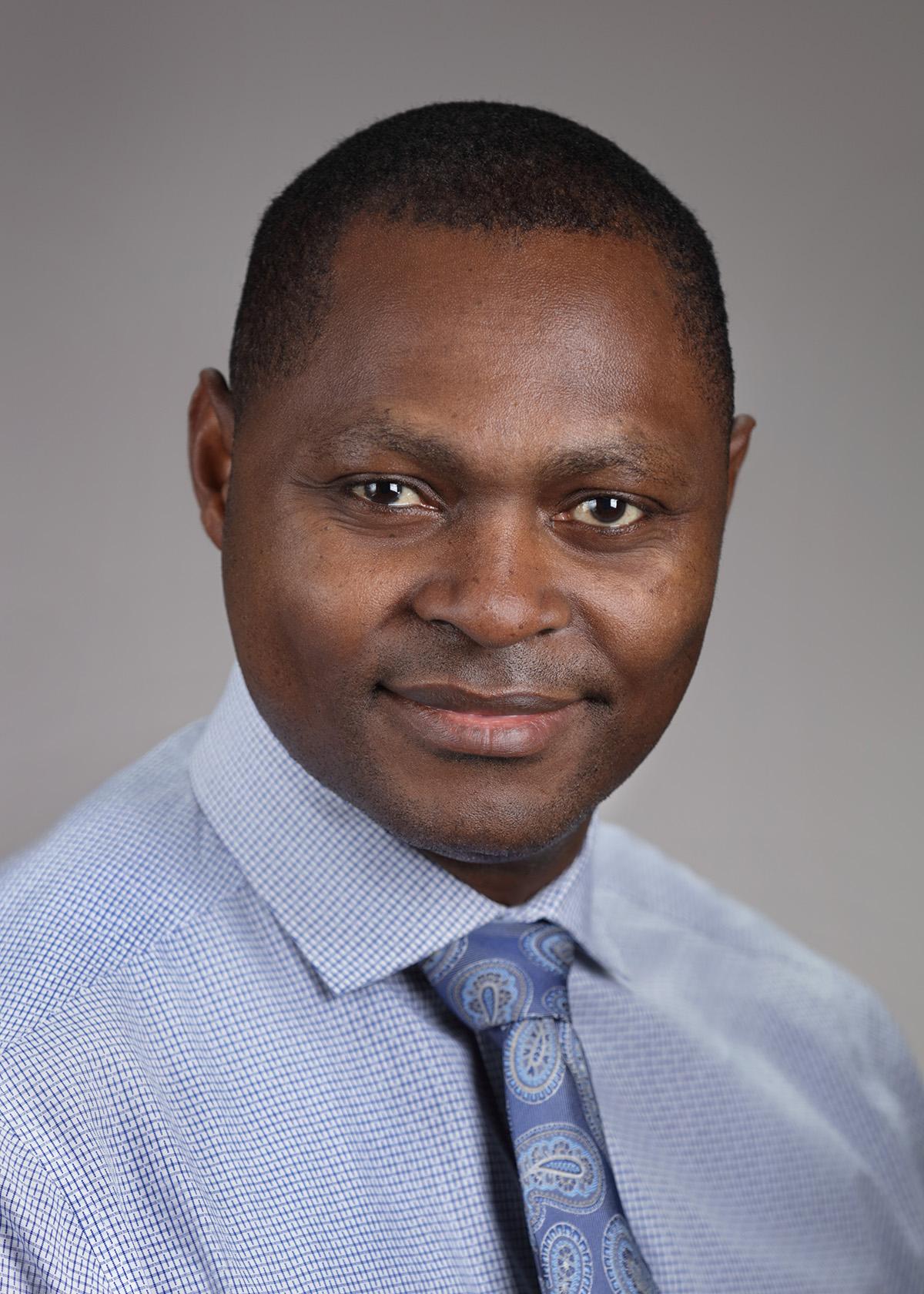
Senior Investigator, Laboratory of Applied Precision Omics, National Heart, Blood, and Lung Institute
Website: https://www.nhlbi.nih.gov/science/applied-precision-omics/people/agbor-sean
Sean Agbor-Enoh, who became a Lasker Scholar in 2019, is developing genomic methods for the early detection and treatment of lung-transplant rejection. His method—which can detect rejection two to three months earlier than the current invasive process of taking a lung-tissue biopsy after rejection has begun—involves a simple blood test that measures cell-free DNA in the bloodstream. “My hope is to bring innovative and cutting-edge approaches to improve survival after lung transplantation,” he said. He received his M.D. from the University of Yaoundé (Yaoundé, Cameroon) and a Ph.D. in molecular biology from Georgetown University (Washington, D.C.). He did a postdoctoral fellowship at Georgetown University Medical Center; a residency and chief residency in internal medicine at Johns Hopkins Bayview Medical Center (Baltimore); a fellowship in critical care medicine at the NIH Clinical Center; and a fellowship in pulmonary medicine at Johns Hopkins Hospital (Baltimore). Outside of work he loves to explore nature’s treasures with his wife and four children, who range in age from 2 to 17.
Christine Campo Alewine M.D., PH.D.

Currently: Associate Professor GI Oncology, Dartmouth University
Formerly: Lasker Clinical Research Scholar, Laboratory of Molecular Biology, Center for Cancer Research, National Cancer Institute
Christine Campo Alewine became a Lasker Scholar in 2016. She is conducting clinical trials to test the effectiveness of a recombinant immunotoxin in combination with standard-of-care chemotherapy in patients who have advanced pancreatic cancer. Recombinant immunotoxins are antibody-based anticancer therapeutics that deliver a potent bacterial toxin to cancer cells; the toxin halts protein synthesis in those cells. Her study may lead to advances in our understanding of whether immunotoxins can be used to treat pancreatic cancer and provide insight into technical aspects of this therapeutic strategy. Alewine received her Ph.D., in physiology, and M.D. from the University of Maryland School of Medicine (Baltimore). She completed a residency in internal medicine at Johns Hopkins Hospital (Baltimore) and a clinical fellowship in medical oncology at NCI’s Laboratory of Molecular Biology. Her outside activities include tennis, hiking, quilting, being a Girl Scout troop leader, and spending time with her husband and their two daughters.
Andrea Apolo, M.D.

Senior Investigator and Chief of the Bladder Cancer Section, Genitourinary Malignancies Branch, National Cancer Institute-Center for Cancer Research
Website: http://irp.nih.gov/pi/andrea-apolo
Andrea Apolo, a 2014 Lasker Scholar, is dedicated to improving the treatment and survival of patients with genitourinary tumors. She is designing and implementing clinical trials to test novel agents for the treatment of urologic cancers. Her primary research interest is in developing targeted bladder-cancer therapies. She is identifying molecular alterations in bladder tumors that will serve as targets for individualized treatment strategies. Another research interest is in developing new imaging modalities to improve the detection of bladder and prostate tumors. She received her M.D. from the Albert Einstein College of Medicine (New York); did a residency in internal medicine at New York–Presbyterian Hospital/Weill Cornell Medical Center (New York); and completed a fellowship in medical oncology at the Memorial Sloan-Kettering Cancer Center (New York). Her outside interests include running and spending time with her family.
Rebecca J. Brown, M.D., M.H.Sc.

Senior Investigator, Diabetes, Endocrinology, and Obesity Branch, National Institute of Diabetes, Digestive, and Kidney Diseases
Website: http://irp.nih.gov/pi/rebecca-brown
Rebecca Brown, who became a Lasker Scholar in 2015, is studying the physiologic mechanisms by which the adipokine leptin alters insulin resistance and energy metabolism both dependent on and independent of its effects on food intake. She focuses on patients with rare, often monogenic disorders of extreme insulin resistance such as lipodystrophy or mutations of the insulin receptor. She applies what she learns toward the development of therapeutics for these rare diseases and is elucidating pathways that may serve as drug targets for more common disorders of insulin resistance. She received her M.D. degree from Mayo Medical School (Rochester, Minnesota) and her M.H.Sc. in clinical research from Duke University (Durham, North Carolina). She was a medical student in the Laboratory of Brain and Cognition, National Institute of Mental Health; did a residency in pediatrics at Rainbow Babies and Children’s Hospital (Cleveland); was a clinical fellow in pediatric endocrinology at the National Institute of Child Health and Human Development; and a senior fellow in clinical research in NIDDK. Before becoming a Lasker Scholar she was an assistant clinical investigator in NIDDK. Having recently become a mother, she spends a lot of time enjoying the ups and downs of parenthood and family life.
Catherine Ann Cukras, M.D., Ph.D.

Currently: Senior Medical Director, Roche Pharmaceutical Ophthalmology
Formerly: Lasker Clinical Research Scholar, Division of Epidemiology and Clinical Applications, Clinical Trials Branch, National Eye Institute
Catherine Ann Cukras, who became a Lasker Scholar in 2018, is excited that her research is furthering progress on the treatment and prevention of blindness. In particular, she uses multidisciplinary approaches to understand the patterns of photoreceptor dysfunction and degeneration in retinal degenerative disease and to design and implement interventional clinical trials. After receiving her M.D.-Ph.D. from Washington University (St. Louis, Missouri), she did an internship at Presbyterian Hospital (Philadelphia), a residency in ophthalmology at the Scheie Eye Institute, University of Pennsylvania (Philadelphia), and a Medical Retina Clinical Fellowship at the National Eye Institute. “The NIH is like family,” she said. “I am lucky to be able to be part of an environment that fulfills me and enriches me as a person.” Outside of work, she loves spending time with her husband, three children, and a puppy.
John P. Dekker, M.D., Ph.D.
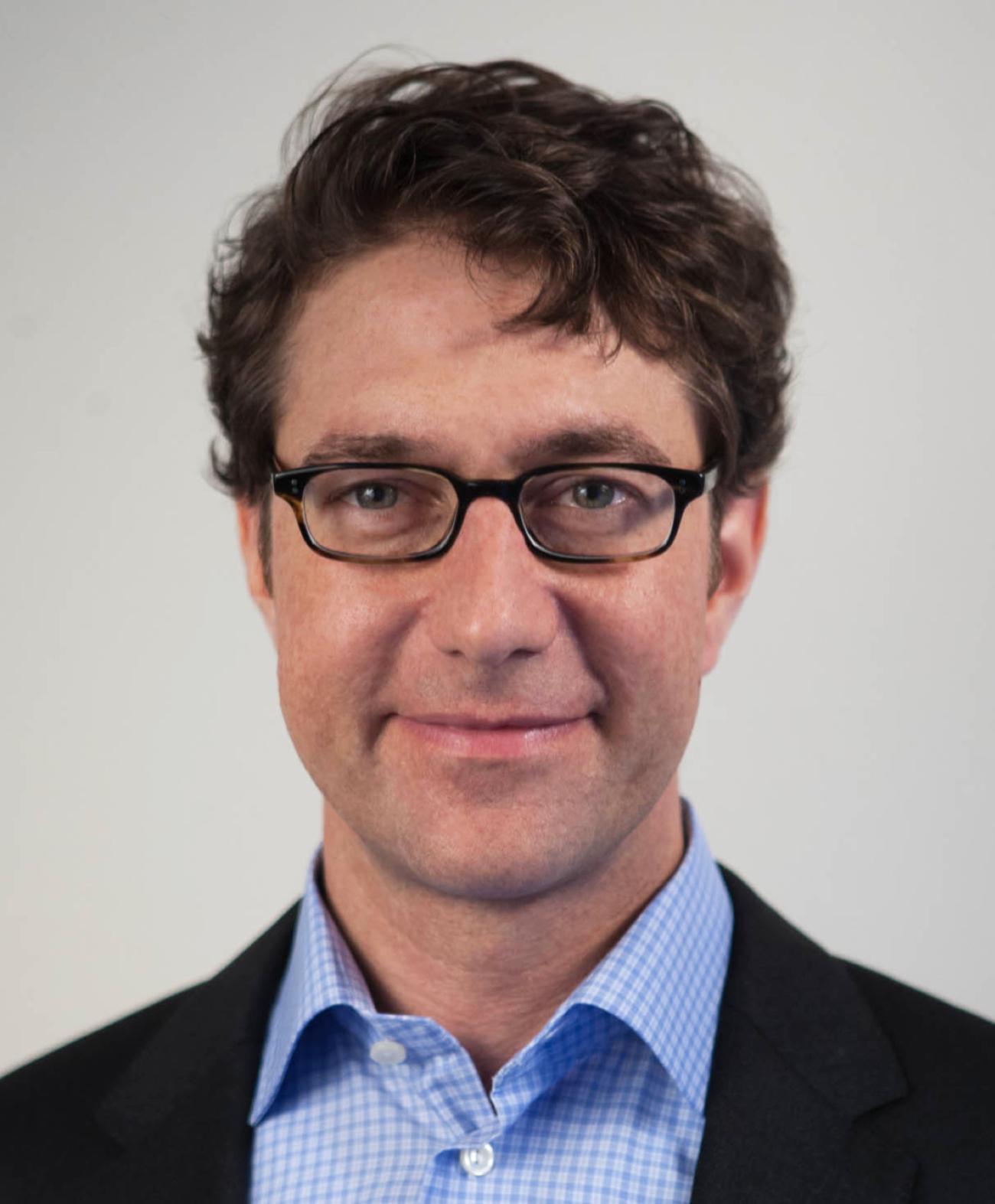
Senior Investigator and Chief, Bacterial Pathogenesis and Antimicrobial Resistance Unit, Laboratory of Clinical Immunology and Microbiology, National Institute of Allergy and Infectious Diseases; Director, Genomics Section, Microbiology Service, Department of Laboratory Medicine, NIH Clinical Center
John Dekker, who became a Lasker Scholar in 2018, focuses on the evolution of bacterial pathogens, their mechanisms of antibiotic resistance, and host-pathogen interactions. He addresses these questions using a variety of computational biology approaches—such as genomic sequencing, transcriptional profiling, proteomic studies with mass spectrometry, and in vitro adaptive-evolution experiments. He received his Ph.D. from Harvard University (Boston) and M.D. from Harvard Medical School (Boston) and did a residency in pathology and a fellowship in medical microbiology at Massachusetts General Hospital (Boston). When he’s not working, he enjoys reading, visiting museums, eating, and spending time with his wife and their horse.
Freddy E. Escorcia, M.D., Ph.D.

Currently: Executive Director, Early Development, RayzeBio Co.
Formerly: Lasker Clinical Research Scholar: Center for Cancer Research, National Cancer Institute
Freddy E. Escorcia, who became a Lasker Scholar in 2021, is dedicated to improving the diagnosis and treatment for patients with gastrointestinal and hepatobiliary cancers. He is designing, engineering, and testing new tumor-directed radiopharmaceuticals for imaging and therapy that he hopes will help improve the quality of life and survival of patients with these malignancies. He earned his M.D. and Ph.D. in molecular pharmacology from the Tri-institutional MD-PhD Program of Weill Cornell Medical College, The Rockefeller University, and Memorial Sloan Kettering Cancer Center (MSK) in New York. He completed a residency in radiation oncology and a postdoctoral fellowship at MSK as an American Board of Radiology B. Leonard Holman fellow. Before becoming a Lasker Scholar, he was an attending radiation oncologist and a Physician-Scientist Early Investigator in NCI. Outside of work, he enjoys weight training, playing basketball, reading, and spending time with his wife and two daughters.
Jessica Gill, R.N. Ph.D.
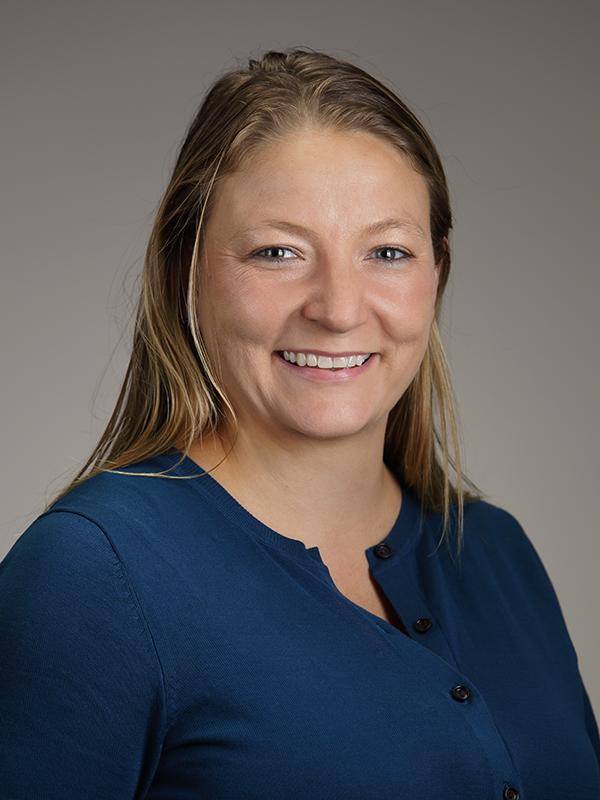
Currently: Bloomberg Distinguished Professor, Johns Hopkins School of Nursing and School of Medicine
Formerly: Acting Deputy Director, Senior Investigator and Chief of the Brain Injury Unit, Tissue Injury Branch, National Institute of Nursing Research
Jessica Gill who was one of the first two Lasker Clinical Research Scholars in 2012, is investigating effective ways to identify trauma patients who are at high risk for psychological and neurological deficits. Her novel findings demonstrate the mechanisms underlying neurological symptoms and deficits in military personnel with traumatic brain injuries (TBI), as well as athletes with concussions. Her research laboratory uses leading-edge technology to identify and link omic biomarkers to neuronal damage through brain-imaging methods that are unique to the NIH. She continues to develop methods for identifying brain-injured patients who are at risk for a poor recovery. Her discoveries are providing the foundation for early interventions to prevent the often irreversible symptoms resulting from post-TBI neurological damage. She received her Ph.D. from the Johns Hopkins School of Nursing and School of Public Health (Baltimore) and did a postdoctoral fellowship at the National Institute of Nursing Research and the National Institute of Mental Health. Before coming to NIH, she was an assistant professor in the School of Nursing and Krasnow Institute for Advanced Studies at George Mason University (Fairfax, Virginia). Her outside interests include spending time with her husband and their three young children, hiking, skiing, and camping.
Christian Hinrichs, M.D.
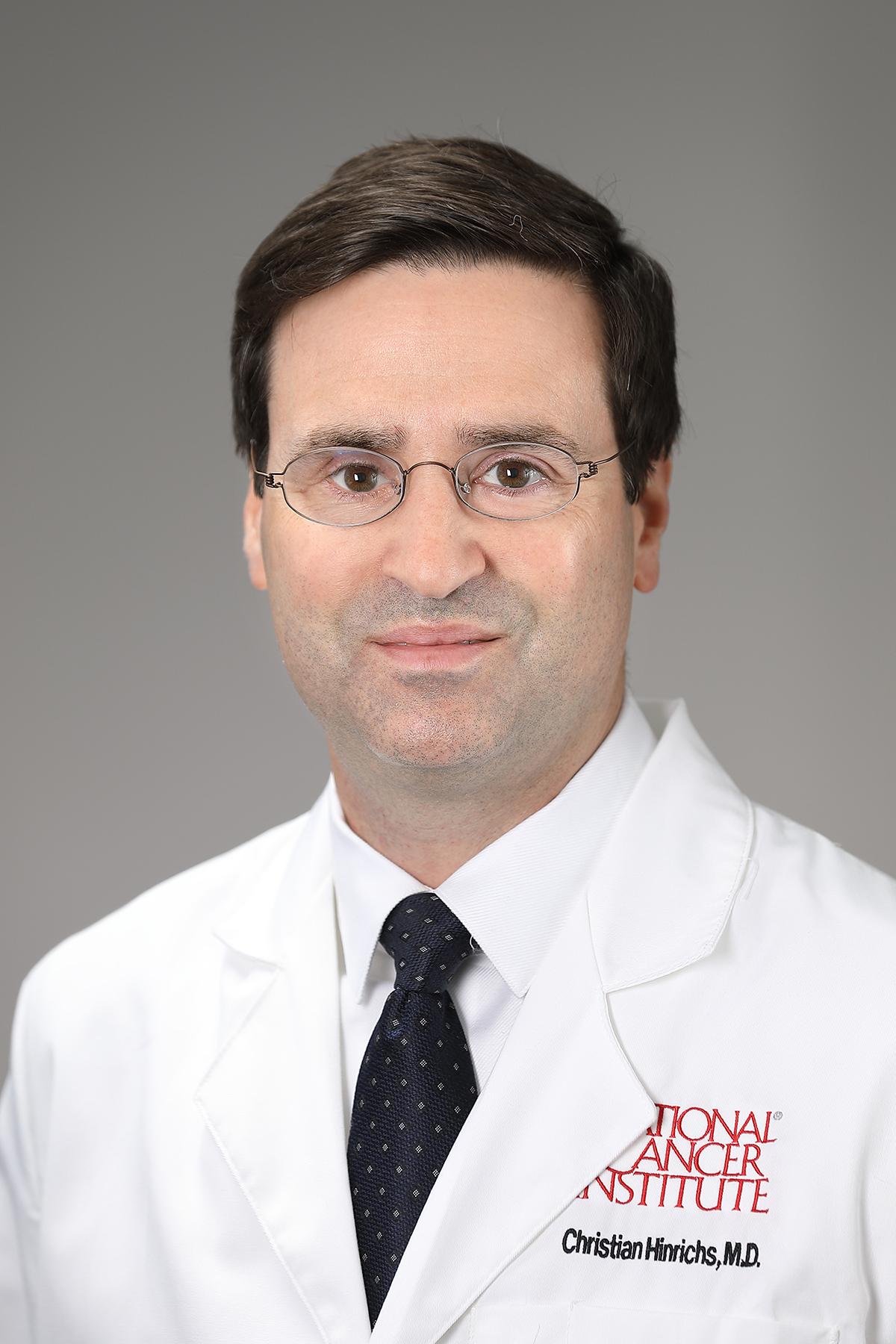
Currently: Chief of the Section of Cancer Immunotherapy and Co-Director of the Cancer Immunology and Metabolism Center of Excellence at the Rutgers Cancer Institute of New Jersey, and Professor of Medicine at the Rutgers Robert Wood Johnson Medical School
Formerly: Senior Investigator and Chief of the Experimental Transplantation and Immunology Branch, National Cancer Institute-Center for Cancer Research
Website: https://cinj.org/research/christian-s-hinrichs-md(link is external)
Christian Hinrichs conducts basic and clinical research to discover and develop new cellular therapies for patients with cancer. He was the first to use T-cell therapy to cure patients with an incurable epithelial cancer—he used tumor-infiltrating lymphocytes to treat metastatic cervical cancer. His laboratory research has defined the importance of viral and non-viral tumor antigens in immunotherapy for viral cancers, which has important implications for how we study and treat these malignancies. In addition, he discovered the genes for T-cell receptors that target viral antigens and demonstrated that treatment with T cells engineered to express these receptors is safe and has clinical activity in advanced-stage cancers. Hinrichs earned his M.D. from the University of Missouri–Kansas City School of Medicine( Kansas City, Missouri). He trained in general surgery at the University of Missouri–Kansas City School of Medicine; surgical oncology at the Roswell Park Cancer Institute (Buffalo, New York); tumor immunology at NCI’s Surgery Branch; internal medicine at the George Washington University School of Medicine and Health Sciences (Washington, D.C.); and medical oncology at NCI’s Medical Oncology Branch. Before becoming a senior investigator, he was an assistant clinical investigator in the NCI Surgery Branch (2012-2015) and a tenure-track Lasker Clinical Research Scholar in the NCI Experimental Transplantation and Immunology Branch (2015-2020). Outside of work, he enjoys spending time with his family, listening to live music at local venues, and running.
Robert Hufnagel, M.D., Ph.D.

Currently: Senior Investigator, Center for Integrated Healthcare Research, Kaiser Permanente, Hawaii
Formerly: Lasker Clinical Research Scholar; National Eye Institute
Rob Hufnagel, a 2021 Lasker Scholar, is dedicated to understanding mechanisms of human genome variation that cause blindness in children. He uses a translational approach combining clinical molecular approaches and developmental biology to improve diagnosis and establish gene:disease and genotype:phenotype relationships. In particular, he uses genomics, stem cell engineering, and gene editing to establish patient-centered disease models for translational and preclinical studies. After receiving his M.D. and Ph.D. from the University of Cincinnati (Cincinnati, Ohio), he completed his Pediatrics and Clinical Genetics residency at Cincinnati Children’s Hospital, followed by fellowships in Clinical Ophthalmic Genetics at the National Eye Institute (NEI/NIH) and Clinical Molecular Genetics and Genomics at the National Human Genome Research Institute (NHGRI/NIH). He loves spending time with his family and their dog, Helix.
Paule V. Joseph, Ph.D., R.N., F.N.P., M.S.
Senior Investigator, Section of Sensory Science and Metabolism, National Institute on Alcohol Abuse and Alcoholism; joint appointment at the National Institute of Nursing Research
Website: https://irp.nih.gov/pi/paule-joseph
Paule V. Joseph, a 2019 Lasker Scholar, is conducting preclinical, clinical, and translational studies to improve the diagnosis, prevention, and management of chemosensory disorders and symptoms—in chronic conditions such as obesity and type 2 diabetes—by examining the role that smell and taste play in those conditions. She is also exploring how the neurological mechanisms underlying taste and smell might be different in individuals with alcohol and substance-use disorders. After receiving her M.S. as a family nurse practitioner from Pace University (New York) and a Ph.D. in nursing and genomics from the University of Pennsylvania (Philadelphia), Joseph did a postdoctoral fellowship in NINR. Outside of work, she enjoys spending time with her parents and her younger sister and doing humanitarian work around the world.
Beth Kozel, M.D., Ph.D.
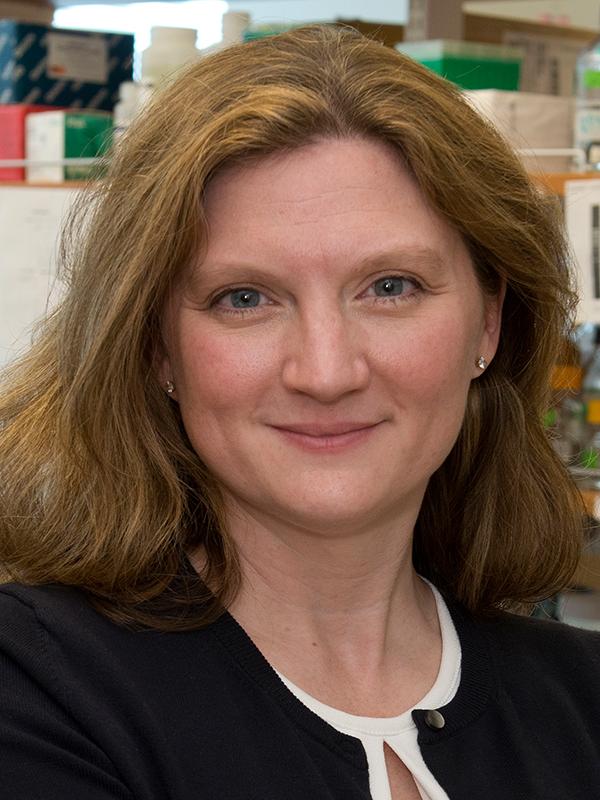
Currently: Director of the Division of Genetics and Genomic Medicine at Nationwide Children’s Hospital; Director of Constitutional Genomics Translational Research in the Institute of Genomic Medicine of Nationwide Children’s Hospital; and Professor of Pediatrics, The Ohio State University
Formerly: Senior Investigator and Chief of the Laboratory of Vascular and Matrix Genetics, National Heart, Lung, and Blood Institute
Beth Kozel, a 2015 Lasker Scholar, is doing research to understand the person-to-person variability in rare cardiovascular disorders such as Williams syndrome (WS), a multigene deletion disorder characterized by cardiovascular disease, developmental delays, deficits in visuospatial processing, and a striking overly friendly personality. Everyone with WS has an insufficiency in the elastin gene, but not everyone has significant vascular manifestations. Modeling genetic and environmental pathways in mice has allowed her team to target therapies that improve the vascular phenotype. She is also looking at the impact of vascular flow abnormalities on end-organ perfusion and function in this population. In addition to the WS work, the Kozel laboratory collaborates with other groups to discover the genes and mechanisms responsible for new vascular disorders. Kozel earned her M.D. and Ph.D. from the Washington University School of Medicine (St. Louis); did a residency in pediatrics at the St. Louis Children’s Hospital and residency in clinical genetics at Washington University School of Medicine – St. Louis Children’s Hospital. Before coming to NIH she was an assistant professor of pediatrics, Genetics and Genomic Medicine at Washington University and is an adjunct assistant professor there now. Outside of work, she and her husband keep busy with their four children and on some weekends, enjoy exploring the area.
Jung-Min Lee, M.D.

Senior Investigator, Women’s Malignancies Branch, Center for Cancer Research, National Cancer Institute
Jung-Min Lee, who became a Lasker Scholar in 2016, is conducting clinical and translational research to study the clinical activity and biomarkers of new immune-based DNA injury combination therapies in women who have recurrent ovarian cancer. Her research is focused on cancers that share similar molecular abnormalities: BRCA mutation-associated breast or ovarian cancer, high-grade epithelial ovarian cancer, and triple negative breast cancer (TNBC). Lee’s clinical trial is the first to test the modulation of immune-checkpoint activity by increasing the antigenic microenvironment with active targeted therapy. The project may have a profound impact on the near- and long-term outcomes of women with recurrent ovarian cancer. Lee earned her M.D. from Yonsei University Wonju College of Medicine (Wonju City, South Korea). She did a residency in internal medicine at Holy Family Hospital, Catholic University Medical College (Seoul, South Korea); a research fellowship in pathology and cell biology at Thomas Jefferson University (Philadelphia); a residency in internal medicine at the Albert Einstein Medical College (New York); a clinical research fellowship on breast-cancer functional imaging at the Memorial Sloan-Kettering Cancer Center (New York); and a medical oncology/hematology fellowship in NCI’s Medical Oncology Branch. Outside of work, she loves going to museums, traveling, swimming, and meditating.
Falk Lohoff, M.D.

Senior Investigator, Section on Clinical Genomics and Experimental Therapeutics, National Institute on Alcohol Abuse and Alcoholism
Website: http://irp.nih.gov/pi/falk-lohoff
Falk Lohoff, one of the 2014 Lasker Scholars, conducts pre-clinical and translational clinical studies with a focus on genomics and epigenetics related to the pathophysiology and treatment of alcohol-use disorders and addictions. In his pre-clinical work, which involves identifying molecular mechanisms involved in addictions, he uses methods such as human population genetics, genome-wide genotyping approaches, next-generation DNA and RNA sequencing, and epigenetic/proteomic profiling. For his clinical studies, he uses molecular biomarker, pharmacogenetic, epigenetic and functional imaging genetic approaches to translate his findings. He is leading early phase 1 and phase 2 proof-of-concept clinical trials using experimental novel therapeutics guided by molecular biomarker profiling. He received his medical degree from the Humboldt University of Berlin (Berlin) and completed residency training in psychiatry and a fellowship in neuropsychopharmacology at the University of Pennsylvania (Philadelphia). Before coming to NIH, he was an assistant professor of psychiatry at the University of Pennsylvania. His outside interests include music, the arts, fencing, and working out.
Jonathan J. Lyons, M.D.

Currently: Professor of Medicine, in Residence, Division of Rheumatology, Allergy and Immunology, University of California, San Diego
Formerly: Lasker Clinical Research Scholar, National Institute of Allergy and Infectious Diseases
Jonathan Lyons became a Lasker Scholar in 2018 and has helped in the discovery of many single-gene disorders that lead to severe allergic diseases or reactions. He is using human immunogenetics to gain a better understanding of the immunopathogenesis of allergic reactions and is exploring novel interventional approaches for the treatment and prevention of severe allergic reactivity and anaphylaxis. He received his M.D. from the Keck School of Medicine, University of Southern California, Los Angeles; did a residency in internal medicine (and served as chief resident) at the University of California at San Diego; and was a clinical fellow in allergy and immunology at the National Institute of Allergy and Infectious Diseases. Outside of work, he likes to spend time with his family, go grocery shopping with his three-year-old son, plan meals, and cook.
Nehal Mehta, M.D., M.S.C.E., F.A.H.A.
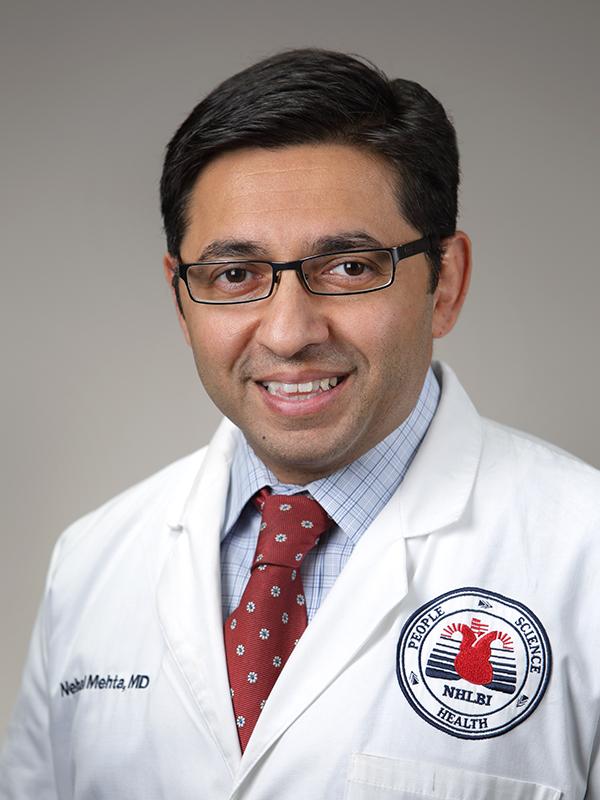
Currently: Clinical Professor of Medicine, George Washington University
Formerly: Senior Investigator and Chief of the Section of Inflammation and Cardiometabolic Diseases, National Heart, Lung, and Blood Institute
Nehal Mehta was the inaugural scholar in the Lasker Clinical Research Scholars program in 2012. His research focuses on the role of innate immunity and inflammation in the development of cardiovascular and metabolic diseases. Using a trans-disciplinary approach that involves genetic epidemiology, human translational studies, and novel cardiovascular-imaging approaches, he and his team study how inflammation affects insulin resistance, the development of metabolic syndrome, lipoprotein dysfunction, and atherosclerosis. He directs the largest ongoing cohort study to date in psoriasis (an inflammatory skin disease associated with increased cardiovascular risk) at the NIH Clinical Center to understand how waxing and waning inflammation contributes to atherogenesis. His team was the first to describe a link to neutrophils in atherosclerosis to psoriasis. Most recently, his team described the first in-human observation that treating psoriasis with biologic therapy reduces inflammation and improves coronary artery disease, a finding which received an NHLBI Orloff Science Award in 2018. He received his M.D. degree from the George Washington University accelerated biomedical program (Washington, D.C.) and completed his residency and fellowship training at the University of Pennsylvania (Philadelphia). He did a residency and chief residency in internal medicine; a fellowship in cardiovascular diseases, nuclear cardiology, and preventive cardiology; and a postdoctoral fellowship in genetic epidemiology with a focus on inflammation and lipoproteins. Before coming to the NIH, he was an assistant professor at the Perelman School of Medicine at the University of Pennsylvania; an attending cardiologist in the Hospital of the University of Pennsylvania’s Coronary Care Unit; and the Director of Penn Medicine’s Inflammatory Risk in Preventive Cardiology, a position he still maintains. He also is a clinical professor of medicine at the George Washington University where he provides care in the coronary care unit. His outside interests include spending time with his wife and their two young daughters, cooking, skiing, surfing, and traveling.
Derek Narendra, M.D., Ph.D.
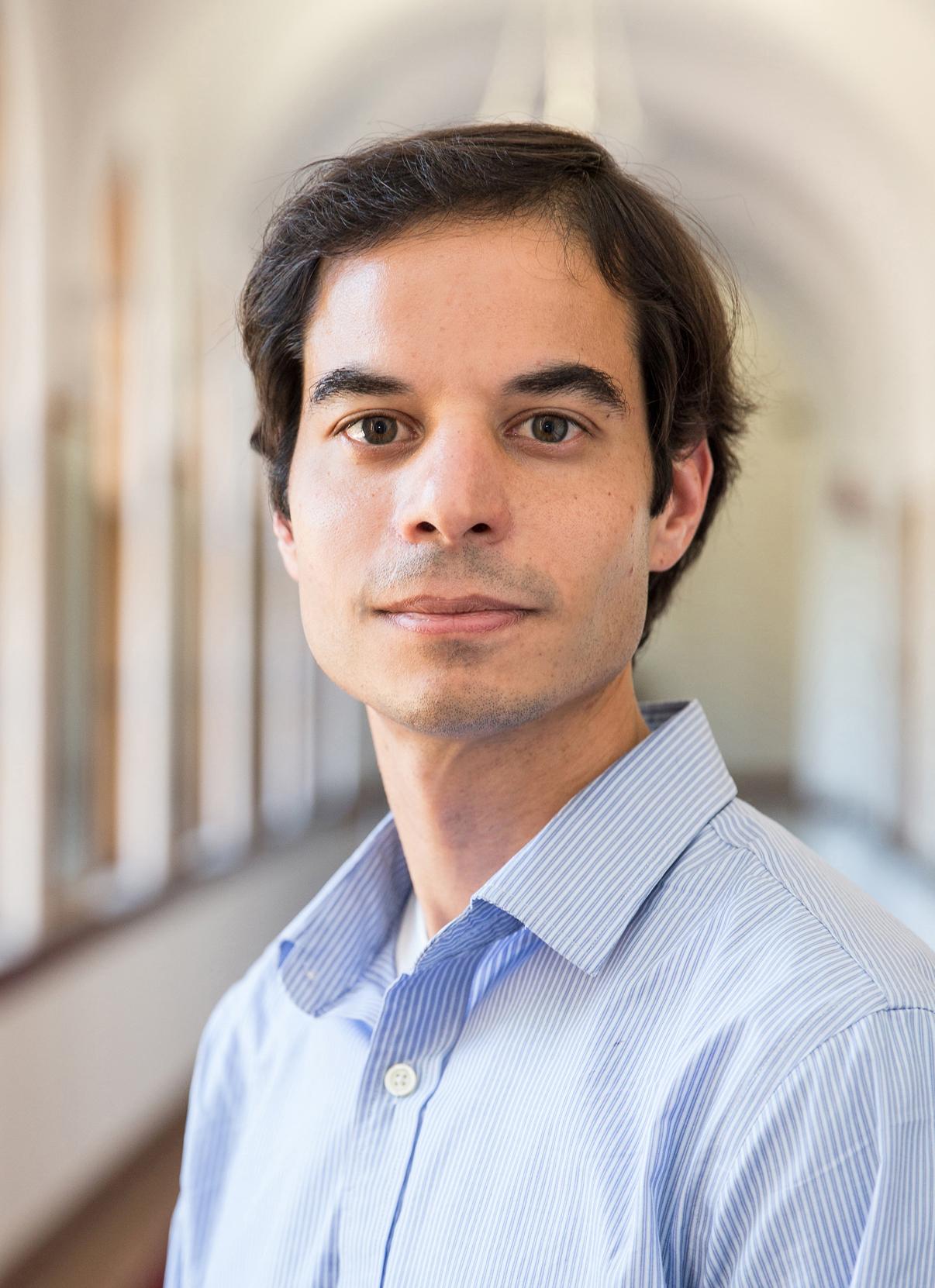
Senior Investigator, Inherited Movement Disorders Unit, Neurogenetics Branch, National Institute of Neurological Disorders and Stroke
Website: https://neuroscience.nih.gov/ninds/Faculty/Profile/derek-narendra.aspx
Neurologist and cell biologist Derek Narendra is a 2020 Lasker Scholar whose research focuses on the genetics of movement disorders. He is especially interested in understanding the genetics and molecular pathogenesis of Early Onset Parkinson Disease (EOPD). His research is expected to enhance the understanding of mitochondrial contributors to PD pathogenesis and enable novel targeted therapies for both the genetic and sporadic forms of PD. Narendra received his M.D. from the University of Michigan Medical School (Ann Arbor, Michigan) and his Ph.D. in medical science from the University of Cambridge (Cambridge, England). He completed the Mass General Brigham Neurology Residency at Harvard Medical School (Boston), and a fellowship in movement disorders at the University of Pennsylvania (Philadelphia). In his spare time, he enjoys running, skiing, and hiking with his wife and daughter.
Armin Raznahan, M.D., Ph.D.
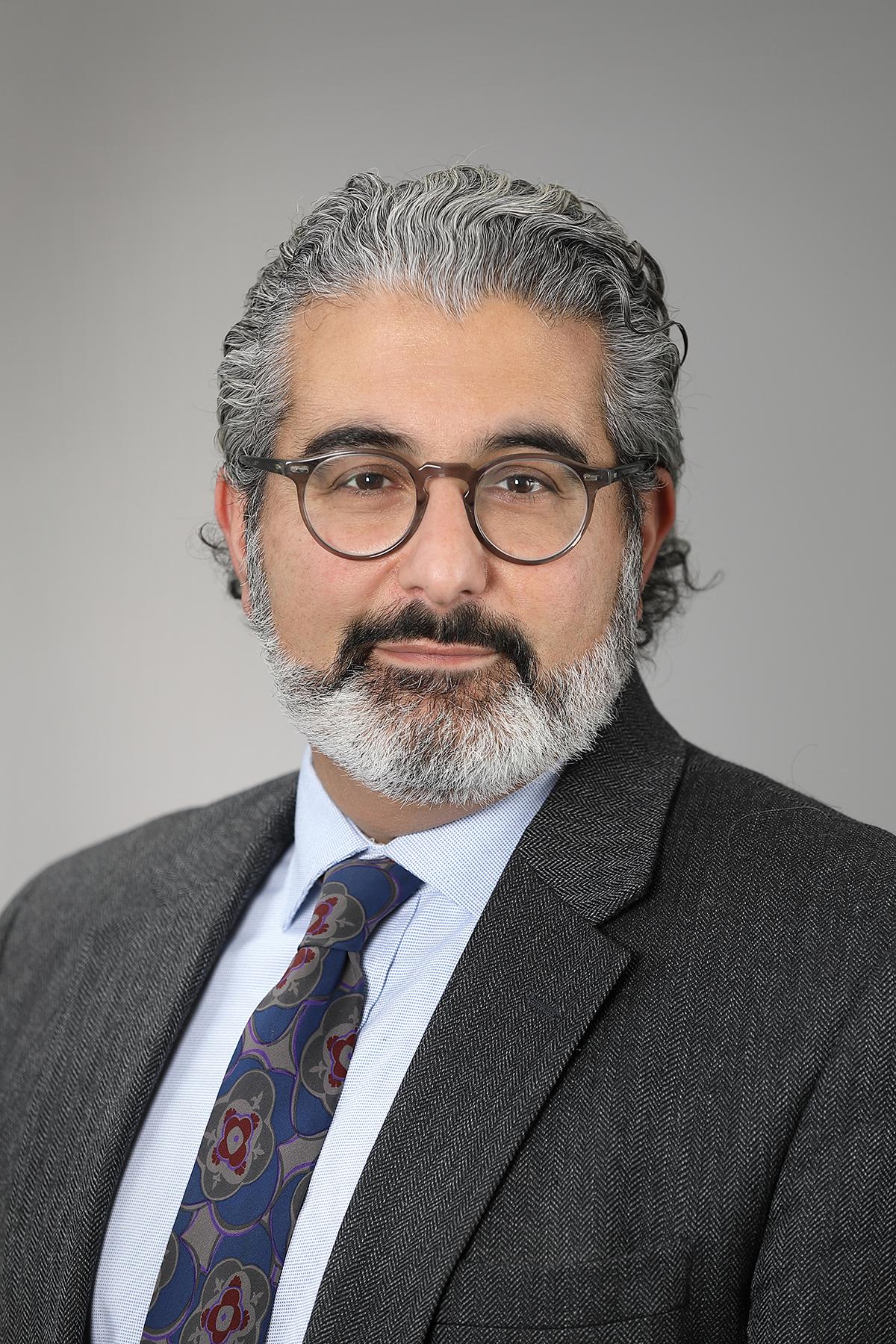
Senior Investigator and Chief of the Section on Developmental Neurogenomics, Human Genetics Branch, National Institute of Mental Health
Website: http://irp.nih.gov/pi/armin-raznahan
Armin Raznahan is striving to better understand the biology of childhood-onset neuropsychiatric disorders. Together with his colleagues and collaborators, he works toward this goal by integrating two broad approaches. First, he uses large-scale longitudinal neuroimaging datasets to study the architecture of brain development in healthy volunteers. By modeling how neuroimaging measures of the human brain vary with age, sex, and behavior in health, he hopes to advance basic developmental neuroscience while also providing a data-driven way of selecting neuroimaging measures that should be prioritized for study in atypically developing groups. Second, he uses a genetics-first strategy to study the relationship between atypical brain development and neuropsychiatric symptoms. This effort involves gathering deep-phenotypic data (spanning measures of gene expression, brain structure and function, psychophysiology, cognition, and behavior) in genetic disorders that increase risk for neuropsychiatric impairment. He harnesses these clinical data to empirically dissect the diverse biological pathways that can contribute to the emergence of neuropsychiatric syndromes. Themes of special interest within his Section include sex differences, evolutionary patterning, and structure-function relationships within the central nervous system. Raznahan earned his M.D. and Ph.D. from King’s College, University of London (London). His training at King’s College Hospital London included a medicine and surgery internship, an emergency room residency, and a residency in pediatrics. He also completed a residency in psychiatry at Bethlem Royal and Maudsley Hospitals (London); a clinical academic fellowship in child and adolescent psychiatry at Institute of Psychiatry, King’s College London and at Bethlem Royal and Maudsley Hospitals; was a clinical research training fellow at NIMH and Institute of Psychiatry, King’s College London; and a senior research fellow in the NIMH Child Psychiatry Branch. Before becoming a Lasker Scholar, he was a visiting scholar in the Neurogenetics Program at the University of California at Los Angeles; and a staff scientist and assistant clinical investigator at the NIMH Child Psychiatry Branch. Outside of work he likes spending time with his wife and daughter; cooking; listening to music; dancing; and “drinking from the hose that is Twitter.”
Nirali N. Shah, M.D., M.H.Sc.
Senior Investigator, Pediatric Oncology Branch, Center for Cancer Research, National Cancer Institute
Website: https://irp.nih.gov/pi/nirali-shah
Nirali N. Shah, who is a 2019 Lasker Scholar, is testing novel immunotherapeutic approaches to treat high-risk hematologic malignancies in children, adolescents, and young adults. Her research focuses on chimeric antigen receptor (CAR) T-cell-based strategies and other antibody-based therapies. She leads clinical trials to treat relapsed and refractory pediatric acute lymphoblastic leukemia; serves as an associate investigator on several transplant trials with patients who have primary immunodeficiency; and, in collaboration with investigators in the National Institute of Allergy and Infectious Diseases, is leading an effort on transplantation for children with DOCK8 immunodeficiency syndrome. She received her M.H.Sc. in clinical research from Duke University (Durham, North Carolina)–National Institutes of Health and her M.D. from the University of Illinois, College of Medicine (Chicago). She did an internal medicine residency at Harvard Combined Internal Medicine–Pediatrics Residency Program (Boston); was a fellow in pediatric hematology-oncology at the joint National Cancer Institute–Johns Hopkins Hospital (Baltimore) training program; and served as clinical fellow and staff clinician in NCI’s Pediatric Oncology Branch. Outside of work, she is kept busy with three children ages 4 to 11— balancing work, homework, after-school activities, and “having a bossy baby make us all sing Frozen songs.”
Sonja W. Scholz, M.D., Ph.D.

Senior Investigator and Chief, Neurodegenerative Diseases Research Unit, National Institute of Neurological Disorders and Stroke
Sonja Scholz became a Lasker Scholar in 2018 and is helping to unravel the genetic causes of complex neurodegenerative diseases such as Lewy body dementia, multiple-system atrophy, and related Parkinsonism syndromes. She hopes to advance the understanding of these conditions, improve diagnostic accuracy and targeted treatments, and incorporate genetic knowledge into routine clinical assessments. She received her M.D. from the Medical University of Innsbruck (Innsbruck, Austria) and her Ph.D. in neurogenetics from the University College London, Queen Square Institute of Neurology (London). She completed a residency in adult neurology at Johns Hopkins University Medical Center (Baltimore); did a postdoctoral fellowship in neurogenetics at the National Institute of Aging; and a postdoctoral fellowship in neuroscience at Georgetown University (Washington, D.C.). In her spare time, she likes to relax with a good book in the company of her two cats, Bill and Hillary.
H. Nida Sen, M.D., M.H.S.
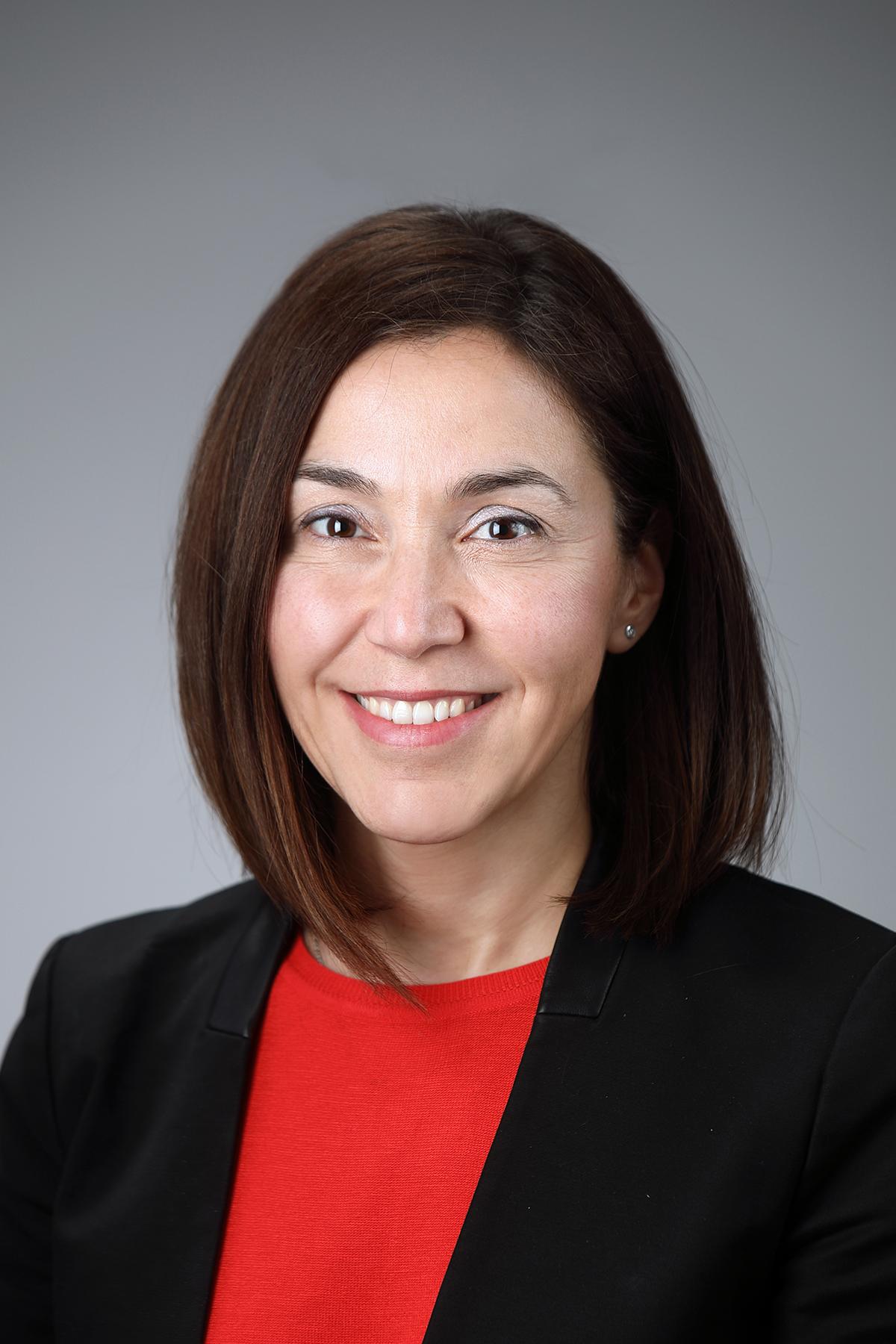
Currently: Senior Director/Clinical Lead of Ophthalmology Clinical Development, Janssen Retina
Formerly: Chief of the Unit on Clinical Translational Immunology, Laboratory of Immunology, National Eye Institute
H. Nida Sen became a Lasker Scholar in 2018. As a Lasker Scholar, she worked to develop biomarkers and novel therapeutic approaches in an effort to better understand and treat uveitis, an immune-mediated eye disease which is an important cause of blindness. She received her M.D. from Hacettepe University Medical School (Ankara, Turkey) and an M.H.S. from Duke University (Durham, North Carolina). She did a residency in ophthalmology at the Ankara Training and Research Hospital (Ankara, Turkey); a residency in ophthalmology at George Washington University (Washington, D.C.); and a clinical fellowship in uveitis and ocular immunology at the National Eye Institute. When she’s not at work, she enjoys spending time with her family, traveling, and cooking.
Natalie D. Shaw, M.D. M.M.Sc.

Senior Investigator, Clinical Research Branch/Pediatric Neuroendocrinology Group, National Institute of Environmental Health Sciences
Website: http://irp.nih.gov/pi/natalie-shaw
A 2015 Lasker Scholar, Natalie Shaw is interested in determining the physiologic and pathophysiologic underpinnings of irregular menstrual cycles among adolescent girls. Although irregular menstrual cycles are a common part of female development, a subset of teens never make the critical transition to normal menstrual cycles. By investigating the mechanisms underlying irregular cycles after the first menses, including potential genetic and environmental contributors (such as body weight and sleep structure and duration), she hopes to identify girls at high risk for future hormonal and metabolic complications who deserve early treatment. Shaw received her M.D. from the University at Buffalo State University of New York Medicine and Biomedical Sciences (Buffalo, New York) and her M.M.Sc. from Harvard Medical School (Boston). She then did a residency in pediatrics at the Children’s Hospital of Pittsburgh (Pittsburgh); a clinical fellowship in pediatric endocrinology at Children’s Hospital Boston (Boston); and a research fellowship in reproductive endocrinology at Massachusetts General Hospital (Boston). Before coming to the NIH, she was an assistant professor in pediatrics at Harvard Medical School and an attending physician in pediatric endocrinology at Children’s Hospital Boston. Outside of work, Shaw considers herself a fitness buff (running, playing soccer, cycling, practicing yoga, and enjoying Zumba), and she loves to travel and spend time with her husband and their 2-year-old daughter.
Anish Thomas, M.B.B.S., M.D.
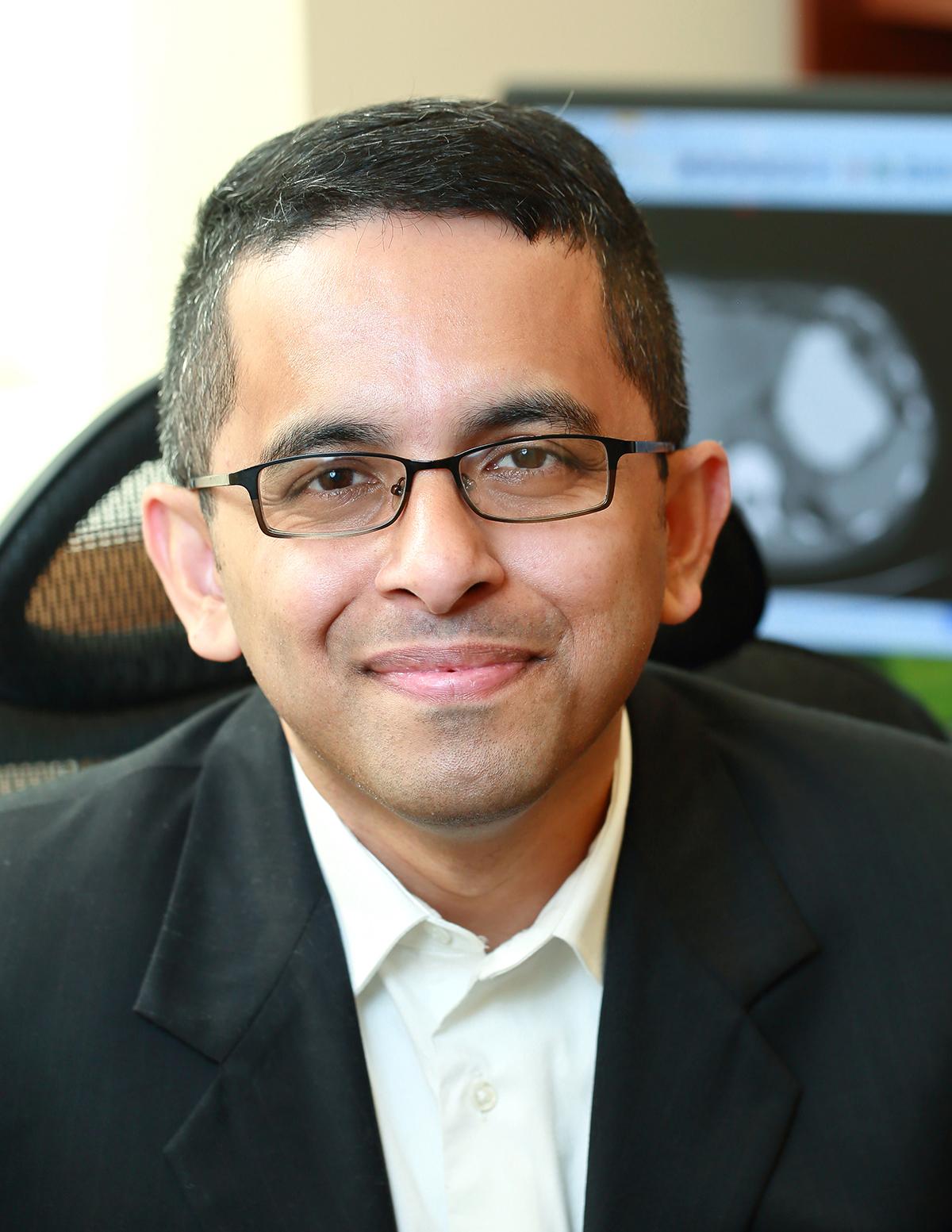
Senior Investigator and Chief of the Developmental TherapeuticsBranch, Center for Cancer Research, National Cancer Institute
Website: https://irp.nih.gov/pi/anish-thomas
Anish Thomas, a medical oncologist with a focus on clinical and translational research of small-cell lung cancer (SCLC), became a Lasker Scholar in 2017. His goal is to systematically develop more effective therapies for patients with SCLC and similar chemotherapy-refractory tumors by targeting key pathways involved in DNA replication, repair, and chromatin remodeling. His current work builds on more than six years of experience in clinical research of thoracic cancers. Thomas received his M.B.B.S. and M.D. from St. John’s Medical College (Bangalore, India). He completed an internal medicine residency at the State University of New York Upstate Medical University (Syracuse, N.Y.); and did fellowships in medical oncology at the National Cancer Institute and in hematology at the National Heart, Lung, and Blood Institute. Outside of work, he enjoys spending time with his wife and four children.
This page last reviewed on


